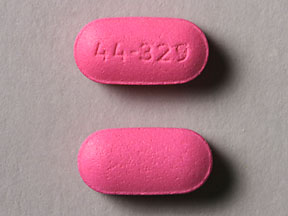Diphenhydramine Interactions
There are 449 drugs known to interact with diphenhydramine, along with 8 disease interactions, and 1 alcohol/food interaction. Of the total drug interactions, 15 are major, 431 are moderate, and 3 are minor.
- View all 449 medications that may interact with diphenhydramine
- View diphenhydramine alcohol/food interactions (1)
- View diphenhydramine disease interactions (8)
Most frequently checked interactions
View interaction reports for diphenhydramine and the medicines listed below.
- Adderall (amphetamine / dextroamphetamine)
- Aspirin Low Strength (aspirin)
- Ativan (lorazepam)
- Claritin (loratadine)
- CoQ10 (ubiquinone)
- Cymbalta (duloxetine)
- Eliquis (apixaban)
- Fish Oil (omega-3 polyunsaturated fatty acids)
- Flexeril (cyclobenzaprine)
- Flonase (fluticasone nasal)
- Lexapro (escitalopram)
- Lyrica (pregabalin)
- Metoprolol Succinate ER (metoprolol)
- Metoprolol Tartrate (metoprolol)
- MiraLAX (polyethylene glycol 3350)
- Mucinex (guaifenesin)
- Norco (acetaminophen / hydrocodone)
- ProAir HFA (albuterol)
- Probiotic Formula (bifidobacterium infantis / lactobacillus acidophilus)
- Seroquel (quetiapine)
- Singulair (montelukast)
- Synthroid (levothyroxine)
- Tylenol (acetaminophen)
- Vitamin B12 (cyanocobalamin)
- Vitamin C (ascorbic acid)
- Vitamin D3 (cholecalciferol)
- Xanax (alprazolam)
- Zofran (ondansetron)
- Zoloft (sertraline)
- Zyrtec (cetirizine)
Diphenhydramine alcohol/food interactions
There is 1 alcohol/food interaction with diphenhydramine.
Diphenhydramine disease interactions
There are 8 disease interactions with diphenhydramine which include:
- depression
- anticholinergic effects
- asthma/COPD
- cardiovascular
- renal/liver disease
- glaucoma
- liver disease
- resp depression
More about diphenhydramine
- diphenhydramine consumer information
- Compare alternatives
- Pricing & coupons
- Reviews (543)
- Drug images
- Latest FDA alerts (2)
- Side effects
- Dosage information
- Patient tips
- During pregnancy
- Support group
- Drug class: anticholinergic antiemetics
- Breastfeeding
Related treatment guides
Drug Interaction Classification
| Highly clinically significant. Avoid combinations; the risk of the interaction outweighs the benefit. | |
| Moderately clinically significant. Usually avoid combinations; use it only under special circumstances. | |
| Minimally clinically significant. Minimize risk; assess risk and consider an alternative drug, take steps to circumvent the interaction risk and/or institute a monitoring plan. | |
| No interaction information available. |
See also:
Paracetamol
Paracetamol (Panadol, Calpol, Alvedon) is a widely used over-the-counter painkiller and fever ...
Clonazepam
Clonazepam is used to treat seizures and panic disorder. Learn about side effects, interactions and ...
Xolair
Xolair injection (omalizumab) is used to reduce the risk of severe food allergy reactions ...
Fluticasone nasal
Fluticasone nasal is used for allergic rhinitis, allergies, chronic rhinosinusitis with nasal ...
Hydroxyzine
Hydroxyzine is an antihistamine used to treat itching, hives, and anxiety. It also acts as a ...
Ondansetron
Ondansetron is used to prevent nausea and vomiting caused by surgery, chemotherapy, or radiation by ...
Ibuprofen
Ibuprofen (Advil, Motrin) treats minor aches and pains caused by the common cold, headaches ...
Prednisone
Prednisone is used to treat allergic disorders, ulcerative colitis, psoriasis and arthritis. Learn ...
Montelukast
Montelukast is a daily oral medication used to prevent asthma attacks, exercise-induced ...
Further information
Always consult your healthcare provider to ensure the information displayed on this page applies to your personal circumstances.


